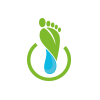
“Progress through knowledge”: the project LIFE TTGG – The Tough Get Going was born with this perspective: a successful synergy between universities, start-upcompanies, manufacturers, Italian and French training and research Institutions.

Developing an effective and shared system to calculate and to reduce the environmental footprint, in compliance with the Product Environmental Footprint methodology (PEF).

Raising the awareness of individual manufacturers, encouraging the environmental certification of their products, disseminating the PEF methodology to PDOs cheese Consortia.

Increasing the awareness of consumers and stakeholders on PEF, through targeted information and communication campaigns.

Simplifying PEF calculation and ease company decision-making, through user-friendly tools.

Optimising the environmental and economic performance of the involved players (farms, dairies and packaging manufacturers).

Transferring the acquired know-how to other European PDO and PGI products.
POLITECNICO DI MILANO
A leading international reference for education and research, Politecnico di Milano participates in the LIFE TTGG project with the Departments of Energy and Design.

A leading international reference for education and research, Politecnico di Milano participates in the LIFE TTGG project with the Departments of Energy and Design.

CONSORZIO TUTELA GRANA PADANO
(Grana Padano Protection Consortium) was founded in 1954 to promote, protect and monitor what has now become the most widely consumed PDO cheese in the world, Grana Padano. 128 are the producer members, 149 ripeners, 194 companies authorized for packaging, 4250 livestock companies supplying milk involving a total of 40,000

(Grana Padano Protection Consortium) was founded in 1954 to promote, protect and monitor what has now become the most widely consumed PDO cheese in the world, Grana Padano. 128 are the producer members, 149 ripeners, 194 companies authorized for packaging, 4250 livestock companies supplying milk involving a total of 40,000

CENTRE NATIONAL INTERPROFESSIONNEL DE L’ECONOMIE LATIÈRE (CNIEL)
Composed of representatives of farmers’ federations, private processors and cooperatives, CNIEL is the institution responsible for the organisation of the entire French dairy sector

Composed of representatives of farmers’ federations, private processors and cooperatives, CNIEL is the institution responsible for the organisation of the entire French dairy sector

UNIVERSITÀ CATTOLICA DEL SACRO CUORE
Historical Italian academic institution, the UCSC participates in the LIFE TTGG project with the Department of Food Science and Technology for a Sustainable Supply Chain (DISTAS) and the Institute of Food and Nutrition Science.

Historical Italian academic institution, the UCSC participates in the LIFE TTGG project with the Department of Food Science and Technology for a Sustainable Supply Chain (DISTAS) and the Institute of Food and Nutrition Science.

QUALIVITA
Since 2002, the Qualivita Foundation is committed to the protection and enhancement of the quality of agricultural and food products and wine products, mainly Italian PDO, PGI and TSG productions.

Since 2002, the Qualivita Foundation is committed to the protection and enhancement of the quality of agricultural and food products and wine products, mainly Italian PDO, PGI and TSG productions.

ENERSEM
A Politecnico di Milano spin off, ENERSEM carries out consultancy and R&D activities, developing innovative solutions for energy consumption reduction in the civil and industrial sectors.

A Politecnico di Milano spin off, ENERSEM carries out consultancy and R&D activities, developing innovative solutions for energy consumption reduction in the civil and industrial sectors.

ORGANIZATION FOR AN INTERNATIONAL GEOGRAPHICAL INDICATIONS NETWORK (oriGIn)
Founded in Geneva in 2003, oriGIn – is a non-profit organization that brings together over 500 producers and institutions linked to Geographic Indications in over 40 countries.

Founded in Geneva in 2003, oriGIn – is a non-profit organization that brings together over 500 producers and institutions linked to Geographic Indications in over 40 countries.

